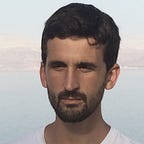WCAIR’s drug discovery beginner’s guide for the Ersilia community
WCAIR, a leading center for anti-infective drug discovery, offered a one-month introductory course for data scientists and software engineers
Ersilia’s community is witnessing a surge in numbers, particularly among software engineers and open source contributors. Having emerged from an academic background with its own unique focuses, the breadth and diversity of members initially took us by surprise. Currently, Ersilia’s Slack community has over 140 participants and we have almost 100 code contributors sharing their expertise in our GitHub repository. The main objective of Ersilia is to create open source AI models for drug discovery, placing a special emphasis on antimicrobial treatments. The science of drug discovery, steeped in complexity, can pose a significant challenge for our community members, most of whom have a strong foundation in computer science but may lack the basic concepts of biology and chemistry.
Venturing into AI without understanding the input, output, relevance, and applicability of the models can be difficult, and more importantly, it can be demotivating and confusing. As maintainers of this open source community, our task is to ensure that everyone understands not only what we do (drug discovery), but also for whom we do it (the global health sector), and how we do it (through medicinal chemistry). We recognize all the effort that goes into contributing to an open source codebase, so it is our duty to provide a sense of purpose and to be crystal clear about the scientific and societal goals of the project.
To support this, we partnered with the Wellcome Centre for Anti-Infectives Research (WCAIR) at the University of Dundee. Recognized for its track record in anti-infective drug discovery, WCAIR also has extensive experience in capacity building in the Global South. You can read their recent article here and find valuable online courses here. WCAIR generously offered an introductory course for beginners, tailored to the needs of Ersilia, i.e., targeting data scientists and software engineers. The course ran for one month in June and consisted of 1.5-hour online synchronous sessions. We welcomed around 20 participants who, upon completion of the course, received a certificate.
The course was divided into four sessions, each with distinct learning objectives:
- Medicines: how do they work? How are medicines administered? How do they act on a target? What are the goals of medicines?
- What is drug discovery? How expensive is it? What does the drug discovery pipeline look like, and which scientists are involved at each stage? What do we mean by ‘small molecule’ drug discovery?
- The need for animals in research. Why are animals needed for research? Who are the scientists that work with animals? Do animals have rights? What regulations ensure the ethical usage of animals?
- The right to work. Can anyone engage in drug discovery? What are the differences between academia and the pharmaceutical industry? Are medicines ‘inventions’? How are they protected? How is drug discovery funded?
These questions were addressed using real-world examples, centering on a case study of leishmaniasis, a neglected tropical disease caused by infection with Leishmania parasites that are spread by the bite of sand flies. Overall, the course provided a comprehensive view of the drug discovery endeavor, and sparked discussions about the role and impact of software engineering and data science within it.
Based on the surveys, feedback from participants was overwhelmingly positive, for which we are profoundly grateful to Lauren Webster, Suze Farrell, and Erika Pinto (WCAIR, Drug Discovery Unit), who facilitated the course. The impact of the knowledge acquired during the course has been quite evident in the latest Ersilia meetings, where discussions are now more dynamic and lively, and critical perspectives on the AI models being developed are more insightful. We’ve noticed an enhanced sense of community and mission alignment, and we are deeply appreciative of this. Hopefully, we’ll be able to offer a second edition of this course next year!
To find out more about Ersilia’s work in building AI capacity in the Global South, and how to get involved, subscribe to our newsletter here.
